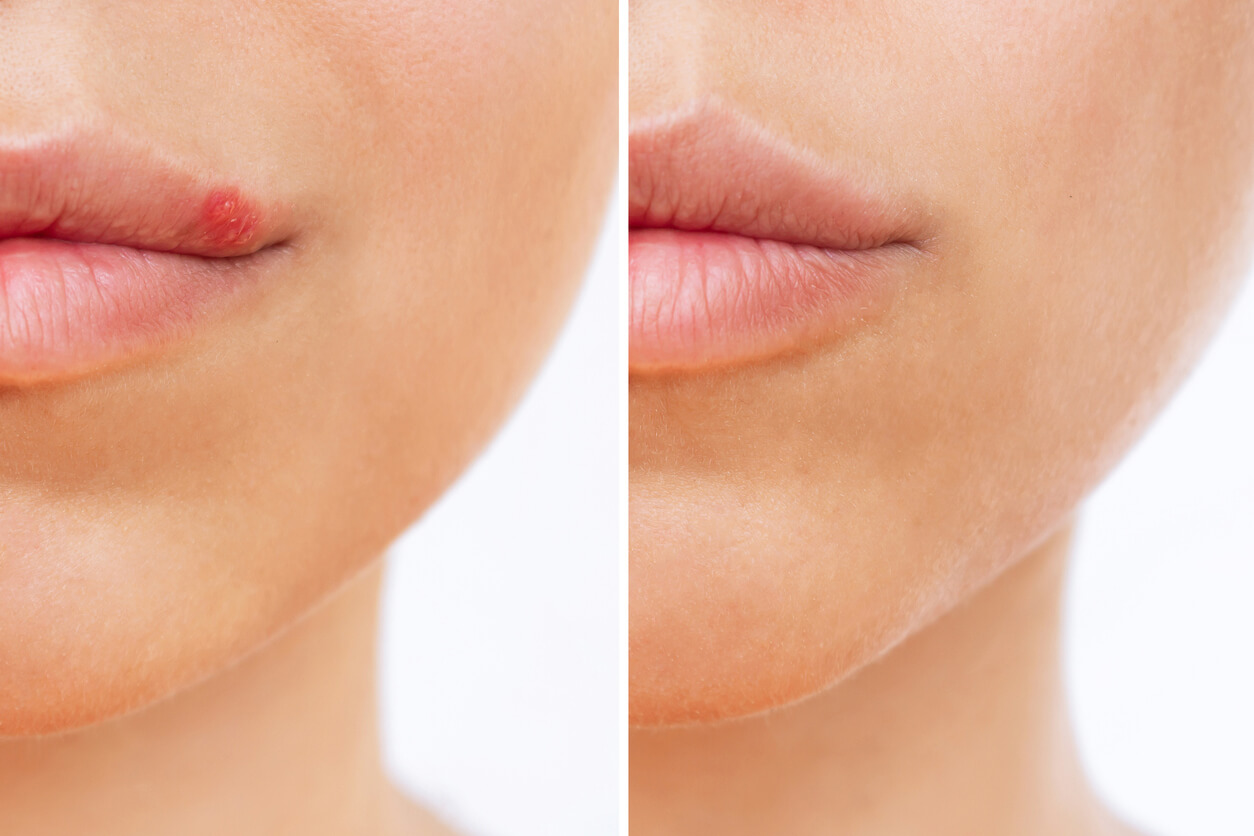12 Ways to Relieve Tooth Pain Fast from Home
If you’ve ever felt pain in or around one of your teeth, gums or jaw, then you’ve experienced a toothache. Tooth pain is one of the most common oral health complaints for adults. In fact, the CDC estimates that over 40% of adults experience it every year. And while toothaches may be common, they can also affect your diet, sleep, and other important components of your life.
Let’s talk about some of the reasons why you may be experiencing tooth pain, along with some helpful remedies for temporary relief from toothaches.
Common causes of tooth pain
There are a number of reasons why you might be experiencing tooth discomfort. Common causes include:
- Tooth sensitivity
- Gingivitis (a mild form of gum disease)
- Fractured or broken tooth
- Tooth decay
- Tooth abscess (bacterial infection)
- Losing a filling
- Wisdom teeth growing in
If your tooth pain or symptoms have persisted for more than a few days, you should make an appointment with a dentist to get to the root of your discomfort. In the meantime, your instinct is probably to stop your tooth pain - fast. We’ve highlighted some short-term remedies below that may help relieve toothaches from home.
Dentist-approved home remedies for quick dental pain relief
At-home dental remedies such as cold compresses, hot packs, brushing and flossing, and over-the-counter medications or mouthwashes are often recommended by dentists and doctors for their efficacy and safety. We’ve taken a deeper dive into these approaches for relieving tooth pain quickly below:
1. Cold compress
A cold compress, such as an ice pack or a bag of frozen vegetables, can provide some much-needed relief from tooth pain. Simply hold the compress against the outside of your cheek or mouth for 20 minutes or so. The cold temperature will cause your blood vessels to constrict, reducing blood flow to the affected area. Dental studies have shown that this cold therapy can help bring down swelling (edema), which can help reduce pain.
Be sure to wrap the compress in a dish towel or napkin before applying it to your face; this can help to prevent skin irritation from the ice.
2. Hot pack
If your tooth pain is the result of a clenched jaw, a warm pack may be able to provide some relief. The warmth from the pack can help to relax muscles around the jaw, easing any tension or spasms that might be contributing to your pain.
As you would with an ice pack, wrap up the hot pack in a towel before holding it against your skin to avoid burning yourself or irritating your skin.
However, if you’re experiencing swelling, it’s best to avoid using a hot pack. Swelling is your body’s attempt to heal an area by sending more blood to it. Since heat improves blood flow, the hot pack can actually cause further swelling and inflammation.
3. Thorough brushing and flossing
Ever had a piece of popcorn stuck between your teeth, or had a small seed wedged in your gum tissue? Then you’ve probably realized that even the tiniest bits of food can become lodged between your teeth or gums. Minor as they may seem, those little particles can cause serious discomfort over time.
Luckily, an in-depth brushing (at least 2 minutes) and flossing (at least 2 minutes) can help to dislodge those painful bits. Remember to be thorough, but gentle while cleaning. You don’t want to cause even more irritation by brushing or flossing too hard!
4. Over-the-counter pain medication
Nonsteroidal anti-inflammatory drug (NSAID) medications like ibuprofen (Advil) and naproxen (Alleve) have been shown to be very effective at reducing pain and inflammation for toothaches.
NSAIDs work by stopping your body from producing prostaglandins, which are substances in the body responsible for pain and inflammation. When you have a toothache, the area around the affected tooth can become inflamed, leading to pain. By taking NSAIDS, the production of prostaglandins in that area is reduced. This can decrease swelling, inflammation, and ultimately, the pain you feel.
Both ibuprofen and naproxen are available over-the-counter and are typically very affordable. However, it’s important to note a few things. For starters, OTC anti-inflammatories are a short-term solution to toothaches and should always be taken as directed on the product’s packaging. Additionally, avoid combining more than one NSAID at a given time – stick to either ibuprofen or naproxen, for example. If your tooth pain is persistent, you should seek advice from your dentist for proper diagnosis and treatment.
5. Medicated oral gel or mouthwash
Over-the-counter (OTC) oral numbing gels and mouthwashes often contain benzocaine, a numbing agent. Benzocaine is a local anesthetic, meaning that it only relieves pain on the areas where it’s applied. This can offer temporary relief from toothaches.
Examples of OTC numbing gels and mouthwashes include Oragel and Anbesol. However, it’s important to note that benzocaine can be harmful to children under 24 months and should not be administered.
Quick household remedies for dental pain
Some remedies for dental pain relief are more traditional. These kitchen table remedies, like clove oil or garlic paste, are often passed down through generations. While generally considered safe, it's important to note that their effectiveness can vary. We've included some of these methods below:
6. Vanilla extract
Vanilla extract may be able to offer temporary relief from toothaches due to its alcohol content, which can help to numb the affected area. To use vanilla extract for toothache relief, you can dab a small amount of it on a cotton ball or cotton swab and apply it directly to your teeth or gums.
Be sure to check the ingredients to confirm that your vanilla extract contains alcohol, as imitation vanilla extract typically doesn’t contain it.
It's important to note that while some studies do show that the vanilla plant has antimicrobial properties against certain oral bacteria, there is not yet research to support that using vanilla extract can alleviate tooth pain - and it certainly will not clear up a dental infection on its own. It's important to consult a dentist for a thorough examination and appropriate treatment of the toothache's root cause.
7. Clove oil
Clove oil is a slightly sweet, spicy oil that contains a compound called eugenol. Eugenol has natural antimicrobial and anesthetic properties. This means it can help kill germs and reduce painful inflammation. For dental pain relief, apply clove oil to a cotton ball and rub it on the affected teeth or gums.
Research has shown that clove oil can be a powerful dental pain reliever. One study found that when 100 patients with a painful dental condition called irreversible pulpitis applied a drop of eugenol oil, their average level of pain decreased from a 7.53 out of 10 to a 1.29 out of 10! In fact, applying eugenol led to lower pain levels for more than 90% of patients.
8. Fresh garlic
Garlic may give you bad breath, but it’s actually great for oral health! Studies have found that allicin, one of garlic’s main compounds, has antibacterial and anti-inflammatory properties that can help fight against cavities, gum disease, oral thrush and more.
To relieve tooth pain with garlic, you can opt for a few methods. One option is to chew on a fresh clove of peeled garlic. The other is to crush up a fresh garlic clove into a paste and mix it with salt, and then apply the mixture to the affected area. After 5-10 minutes, rinse the pieces out with some warm water. While it may not taste great, the compounds in the garlic can act as a temporary pain reliever until you’re able to get to a dentist.
9. Raw onions
Like garlic, onions contain allicin and other compounds that have been shown to have antibacterial and anti-inflammatory effects. While there hasn’t been sufficient research to show that raw onion itself will alleviate tooth pain, studies have shown that onion extract is effective at killing at least 4 types of bacteria that cause cavities and gum disease.
For this method, you can cut a slice of fresh onion (red onions tend to contain the most allicin) and place it in your mouth over the affected tooth or gum. You can also chew up the onion and let the juice cover whatever area is bothering you. After a few minutes, you can rinse and spit with some warm water to clean your mouth out.
10. Warm salt water rinse
Saltwater rinses are one of the oldest-known remedies for alleviating oral health issues - there’s actually evidence that it was recommended by the ancient Egyptians and Romans to treat gum disease! The saltwater has natural antibacterial properties, and the rinsing can help to dislodge any food particles or debris stuck between the teeth that might be causing irritation or infection.
To make a rinse at home, just mix a teaspoon of salt with a cup of warm water and then swish the mixture around in your mouth for a minute or so before spitting it out.
11. Peppermint tea
Strange as it may sound, peppermint tea bag may be able to offer temporary toothache relief! Simply soak a peppermint tea bag in hot water for a few minutes. Once it’s cool, place the tea bag against the affected tooth or gums and leave it in place for 15-20 minutes or so.
Peppermint’s cooling, minty flavor comes from a compound called menthol. Menthol has natural numbing properties, and some studies even suggest that it can speed up wound healing. This makes it a cost-effective, natural remedy for temporary relief from toothache pain.
12. Hydrogen peroxide oral rinse
Hydrogen peroxide is a mild antiseptic that can help to prevent oral infections when used as an oral rinse. While it’s not as strong as prescription mouthwashes, it can help clean the affected area around the tooth and promote healing.
To make the oral rinse, mix the hydrogen peroxide solution with equal parts water and then swish it around in your mouth. Take care not to swallow the mixture, as hydrogen peroxide can be harmful if ingested. For this reason, hydrogen peroxide rinses are not recommended for younger children who are at risk of accidentally swallowing the solution.
When to see a dentist about tooth pain
If you're experiencing tooth pain, it's important to consider the severity and type of pain that you're dealing with. This can help you determine when to seek professional dental care.
If your pain is relatively mild, you might want to wait a day or two to see if it improves with some of the toothache remedies listed above. However, if the pain is severe, persistent, or accompanied by other symptoms such as swelling, fever, difficulty swallowing, or bleeding, immediate dental attention is likely warranted. In that case, you should make an appointment with your dentist right away. Sesame also offers affordable, same-day online dental consults.
As mentioned above, dental pain can be a sign of various issues, ranging from cavities and gum disease to abscesses and tooth fractures. All of these issues require professional evaluation and treatment to prevent further complications. Remember, early intervention can often save a tooth and prevent more serious health issues!









